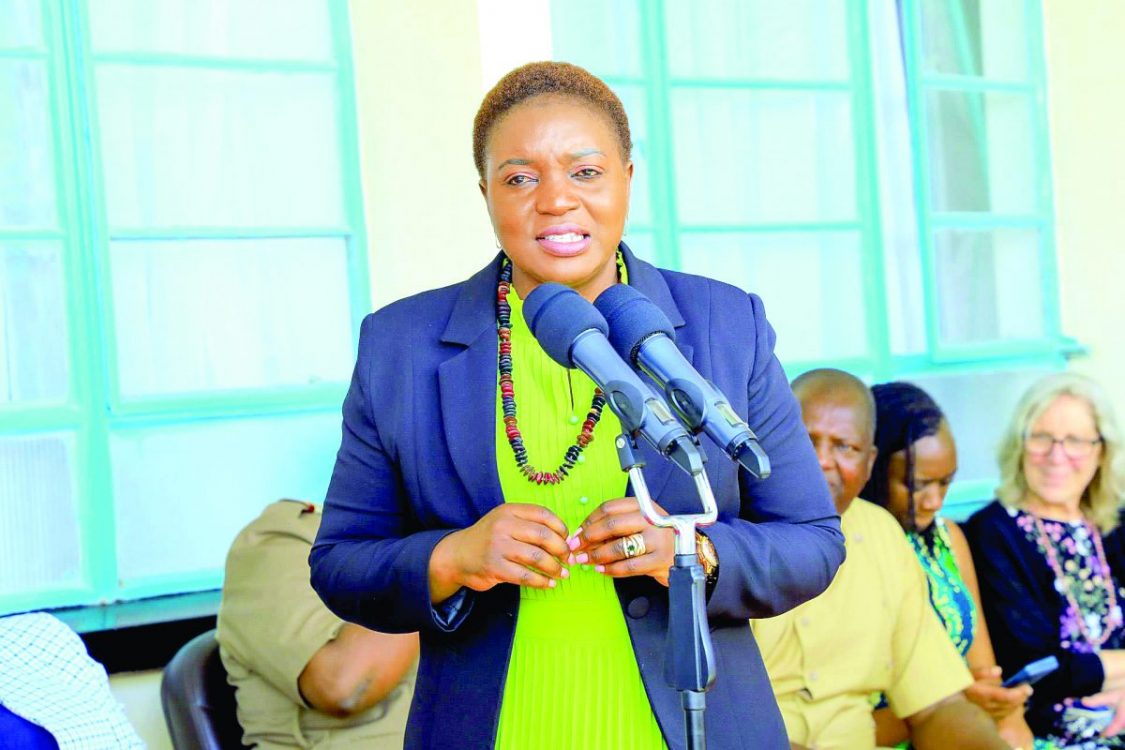Kenyans to pay higher rates in new health plan

It will now be mandatory for all Kenyans to register as members of the Social Health Insurance Fund (SHIF) starting in April.
In the regulations published by Health Cabinet Secretary Susan Nakhumicha yesterday, those currently registered as members of the National Health Insurance Fund (NHIF) will enlist afresh as a member of the new scheme.
The new scheme will be run by the Social Health Authority Board that was inaugurated in November.
It is chaired by Timothy Olweny and comprises principal secretary Harry Kimtai, a representative of the Treasury, Acting Health Director General Patrick Amoth, Cotu secretary general Francis Atwoli, Zakayo Kariuki and Jacinta Mutegi.
“Within ninety days upon the coming into force of these regulations, every person resident in Kenya shall apply to the authority for registration as a member of the Social Health Insurance Fund under section 26(1) of the Act,” read the regulations which will now be tabled in Parliament when it resumes next month.
However, the regulation is silent on what will happen to the assets and liabilities the defunct fund held which include Sh16 billion owed to debtors. The amount includes pending bills and unpaid claims from various health facilities.
According to the regulations, a household whose income is derived from salaried employment shall pay a monthly statutory deduction contribution to SHIF at a rate of 2.75 per cent of the gross salary or wage of the household by the ninth day of each month.
The amount payable every month under the regulation shall not, in any case, be less than Sh300 per month.
Gross salary
If approved by Parliament, Kenyans earning a gross salary of Sh50,000 will pay Sh1,375 up from the current Sh1,200 while those earning over Sh100,000 will part with Sh2,750 up from Sh1,700 with Kenyans earning a gross salary of Sh50,000 will pay Sh1,375 up from the current Sh1,200 while those earning over Sh100,000 will part with Sh2,750 up from Sh1,700.
Earners of Sh500,000 in gross income will pay Sh13,750 up from Sh1,700 and those getting a gross of Sh1,000,000 will pay Sh27,500.
“The Cabinet Secretary, National Treasury shall deduct and remit the contributions of employees in the public service in the National Government and a public office in the National government to the Authority on behalf of National Government by the ninth day of each month,” reads the regulations.
For county governments, the Executive Committee member in charge of the Treasury shall deduct and remit the contributions of employees in the county public service to the authority by the ninth day of each month.
In the case of a household whose income is not derived from salaried employment, an annual contribution to the social health kitty at a rate of 2.75 per cent of the proportion of household income is determined by the means testing instrument as prescribed under the regulation.
The amount payable every month shall not, in any case, be less than Sh300. The amount payable shall be paid 14 days before the lapse of the annual contribution of the beneficiary.
The move comes after the Court of Appeal suspended the orders of the High Court which restrained the implementation and or the implementation of the Social Health Insurance Act, 2023 and The Digital Health Act.
Nakhumicha, while appealing the High Court decision, argued that SHIF had dissolved NHIF and the continued suspension was exacting extreme pain on members of the public, who depended on the scheme.
The regulations state that every person resident in Kenya shall access healthcare services under the Primary Healthcare Fund in the manner provided under the Primary Health Care Act, of 2023.
Loco parentis
A contributor seeking to include a beneficiary in his or her application shall provide the full name of the beneficiary, the date of birth and place of birth, the sex and a passport photograph.
Others are the nationality of the beneficiary, where necessary, the contact information, the relationship, disability , if any; and any other information as may be required by the authority.
In the case of a spouse, a copy of the contributor’s spouse national ID and a copy of the document of evidence of marriage recognized under the Marriage Act.
In the case of a child, a copy of the birth certificate or a copy of a birth notification will be required. Where an adopted child of a contributor is involved, a copy of the adoption order must be provided.
“In the case of a child for whom the contributor stands in loco parentis (being responsible for a child while the child’s parents are absent), a will, deed or court order, while for a person with a disability and who is dependent on a contributor, a copy of the national ID and a certificate of registration from the National Council for Persons with Disabilities must be provided,” state the regulations.
A work permit will be mandatory for a non-Kenyan resident, or an alien identification card or both.
In the case of a person in lawful custody, the prison admission number, the remand identification number or a copy of the national identification document.
Where there is a child in conflict with the law, the admission number of the children’s remand home, rehabilitation institution or borstal institution or a copy of the birth certificate will be required.
For a refugee, an asylum-seeker pass, a movement pass, a letter of recognition, a refugee identification card; or a conventional travel document will be provided for one to be registered.
A parent or guardian of a child shall, within 14 days of the birth of a child, apply to the Authority for the registration.
Upon the child attaining the age of seven years, a parent or a guardian shall present the child at a designated service point to obtain his or her biometric data.
Every parent or guardian and the national government in the case of vulnerable children shall ensure that every child has a social health insurance cover.
Needy households
Within 90 days of attaining the age of maturity, an individual updating his or her registration details as a contributor and as a household separate from the parent or guardian’s household.
The authority will identify households that require financial assistance and for whom the national or county government is liable to pay contributions.
The Ministry of Health, the Ministry of Social Protection and county governments shall identify households that require financial assistance and submit the list of such households to the Authority.
The Ministry responsible for social protection shall be liable as a contributor in the case of national government, while the County Executive Committee member responsible for matters relating to social protection shall be liable as a contributor in the case of the county government.
The amount payable every month for households shall be the base premium calculated using statistical data and actuarial models and guided by the benefits packages.










